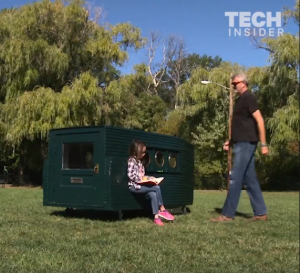
Photo source: Flickr https://bit.ly/2HaW8uD
What is remortgaging?
Remortgaging is the act of moving your loan from one lender to another or negotiating a new rate with your existing lender. You might be able to find a cheaper deal elsewhere, letting you save a bit more each month and pay it off faster. Or you could extend the length of your mortgage, allowing you to pay less each month (but taking longer to pay off completely and paying more interest over the length of your mortgage).
So if you’re looking to pay off other debts*, shorten the length of your mortgage or simply reduce how much you’re paying, you may want to consider remortgaging your home.
The process of remortgaging is fairly simple, but figuring out whether it’s the right financial decision isn’t. We do recommend speaking to a financial adviser further before making a final decision.
Why you may consider remortgaging:
- The value of your property has increased (significantly) since you took out your mortgage, putting you in a lower ‘loan-to-value’ band that opens you up to lower rates.
- Your existing lender won’t allow you to pay more towards your mortgage, even when you can afford it.
- Your existing deal is coming to an end and your lender will place you on an SVR (standard variable rate).
- The Bank of England rate is going to increase, as this can affect your mortgage.
Why you may consider staying with your current lender:
- You’ve suffered credit issues or failed to pay debts (since starting your mortgage).
- If an early repayment charge payable on an existing product exceeds the cost of any savings that could be made by remortgaging.
- You’ve only got a small amount left to pay; switching lenders so late on in the process means you may not save that much.
- Your work situation has changed; perhaps you’re now self-employed or no longer working. This could affect a lender’s decision either way.
What to do when deciding to remortgage
Do your research
Comparison sites are handy for finding current deals, but they don’t always explain in certain terms what’s right for you and your particular circumstances. If you are unsure, we suggest consulting with a mortgage adviser who can make the process as easy as possible and find the right rate for you.
THINK CAREFULLY BEFORE SECURING OTHER DEBTS AGAINST YOUR HOME. YOUR HOME MAY BE REPOSSESSED IF YOU DO NOT KEEP UP REPAYMENTS ON YOUR MORTGAGE.
 Saving up to buy your first home is a challenge that can at times, feel impossible. If you’re a future first time buyer looking for tips on saving for your first home, read some of our advice below:
Saving up to buy your first home is a challenge that can at times, feel impossible. If you’re a future first time buyer looking for tips on saving for your first home, read some of our advice below:
 Buying a property for the first time can be a daunting process, but so long as you have the right knowledge and know the rules you have to follow, it’s a straightforward process. Below, we’ve consolidated the main things you need to prepare and consider, to make sure your home-buying journey goes as smoothly as possible.
Buying a property for the first time can be a daunting process, but so long as you have the right knowledge and know the rules you have to follow, it’s a straightforward process. Below, we’ve consolidated the main things you need to prepare and consider, to make sure your home-buying journey goes as smoothly as possible. Have you ever been disappointed after a viewing? Did a ‘cozy and spacious’ flat ever turn out to be too small to fit in?
Have you ever been disappointed after a viewing? Did a ‘cozy and spacious’ flat ever turn out to be too small to fit in?
 Brilliant – you have found a property to rent! Whether you’re renting for the first time, or already an experienced tenant, you need to ensure you understand your responsibilities. Being aware from the outset of what is expected of you can prevent confusion and issues further down the line. So, what exactly are your responsibilities?
Brilliant – you have found a property to rent! Whether you’re renting for the first time, or already an experienced tenant, you need to ensure you understand your responsibilities. Being aware from the outset of what is expected of you can prevent confusion and issues further down the line. So, what exactly are your responsibilities? A new survey has found that only 1 in 10 people take a property’s energy rating into consideration when looking to buy a house. A poor energy rating could however cost homeowners thousands of pounds each year.
A new survey has found that only 1 in 10 people take a property’s energy rating into consideration when looking to buy a house. A poor energy rating could however cost homeowners thousands of pounds each year.
 The biggest risks from cowboy builders, and what to do if things go wrong.
The biggest risks from cowboy builders, and what to do if things go wrong.